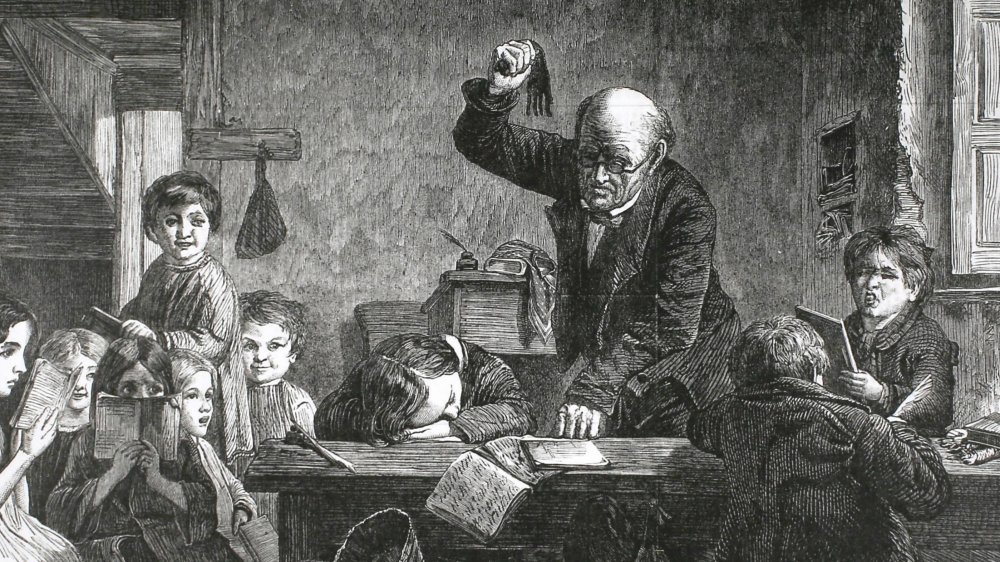The Myth Of The Whipping Boy Explained
Remember, back in grade school, when the whole class would get punished because a few kids were acting up? We used to hate those troublemakers — why should we get punished for what they did?
Well, imagine a more severe scenario: You're a Renaissance-era European child who happens to be friends with a prince. You get educated alongside the prince, and the two of you form a close bond. But when the prince disobeys the rules, your instructor proceeds to punish you — not the prince — by beating or even whipping.
This is the legendary "whipping boy" system that is said to have been employed throughout early modern Europe. The idea is that an educator was far beneath the royal status of a prince, and therefore could not lay a finger on him. So, instead, the tutor would whip the prince's friend in his presence, in the hopes that the emotional trauma would be enough to force the prince to follow orders.
It's a brutal, but seemingly effective, disciplinary system. But modern historians believe that it's more myth than fact.
Would the friend of a prince really be whipped in his place?
Did whipping boys actually exist? The legend relies on the notion that European instructors would never use physical punishment against their students of royal blood. This is probably not true; according to historian Nicholas Orme, royal children were likely beaten less than other pupils, but were still sometimes beaten.
Furthermore, in her book A Culture of Teaching, Professor Rebecca Bushnell concludes that early-modern European teachers did use corporal punishment against royal pupils. For example, it is recorded that the French King Louis XIII was frequently beaten as a boy, and so was the English King James. On the other hand, Bushnell adds that "anecdotes of Edward VI's upbringing ... mention the use of a whipping boy" — but Bushnell questions whether these anecdotes are true.
The historian Leanda de Lisle investigated the supposed use of whipping boys by the English royal family — specifically, both Edward VI and the later Charles I. She found that the stories about these kings' whipping boys originated long after the men had died, and are most likely fictional. In fact, she found that the first reference to English whipping boys was in a play written in 1605.
So. were whipping boys ever used in Europe? It's hard to say for sure, but historians can agree that it was never a common practice. Rule-following students can breathe a sigh of relief.

